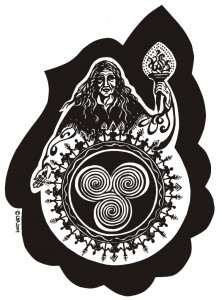 Some of women’s life passages seem to happen in an instant and without active participation. One day menstruation starts. The day before, we were children. On that day and for many years after, we have the potential to bear children. Although the change came without our active participation, how those around us responded to the change undoubtedly affected how we felt about the transition. Was this marker of “growing up” celebrated by our family and community, or was it hidden or ignored? Did we feel good about ourselves and our new status, or did we wish we could go back to the way it used to be?
Some of women’s life passages seem to happen in an instant and without active participation. One day menstruation starts. The day before, we were children. On that day and for many years after, we have the potential to bear children. Although the change came without our active participation, how those around us responded to the change undoubtedly affected how we felt about the transition. Was this marker of “growing up” celebrated by our family and community, or was it hidden or ignored? Did we feel good about ourselves and our new status, or did we wish we could go back to the way it used to be?
As we grow older, our bodies continue to change. Unlike the onset of menstruation, menopause generally takes a long time, and most women experience some uncomfortable physical effects during the process. Many of us live in cultures that celebrate youth and beauty. This can make women feel shame and loss as we grow older. However, we are at a stage of life where we can choose how to respond to this transition. We can resist the aging process, try to reverse it, and even lie about our ages. Or we can embrace the changes and look for ways to affirm our new status as older women.
In ancient European Pagan traditions the stages of women’s lives were described as maiden, mother, and crone. The transitions were marked by ritual celebrations that honored both the individual and the group. In recent times these traditions and celebrations have been rediscovered. Reclaiming the word “crone” as a positive image of the wise older woman has been important for many women as a way to come to terms with who we are as we age.


